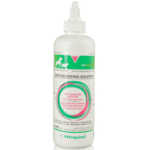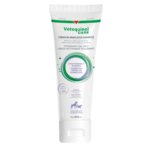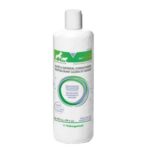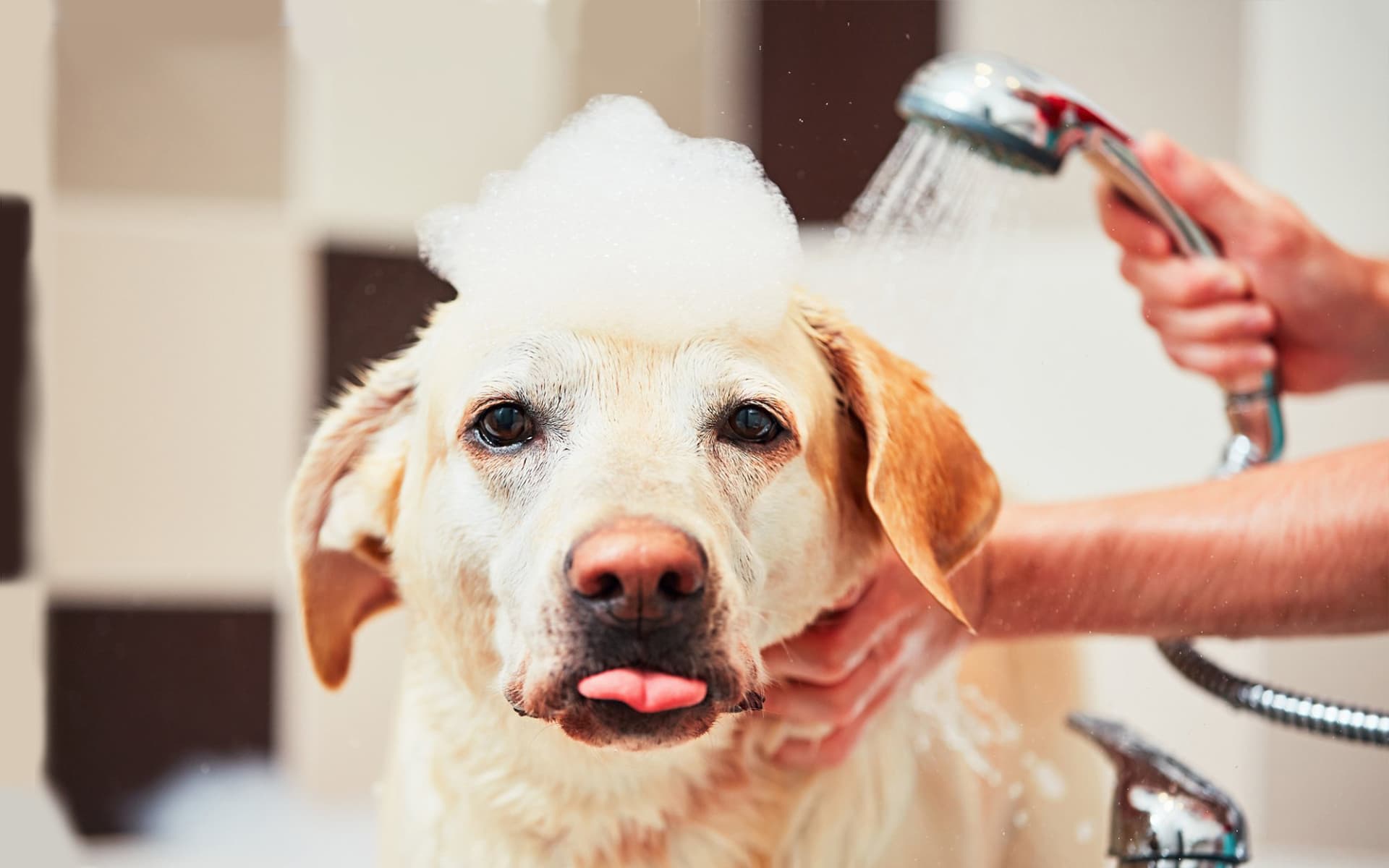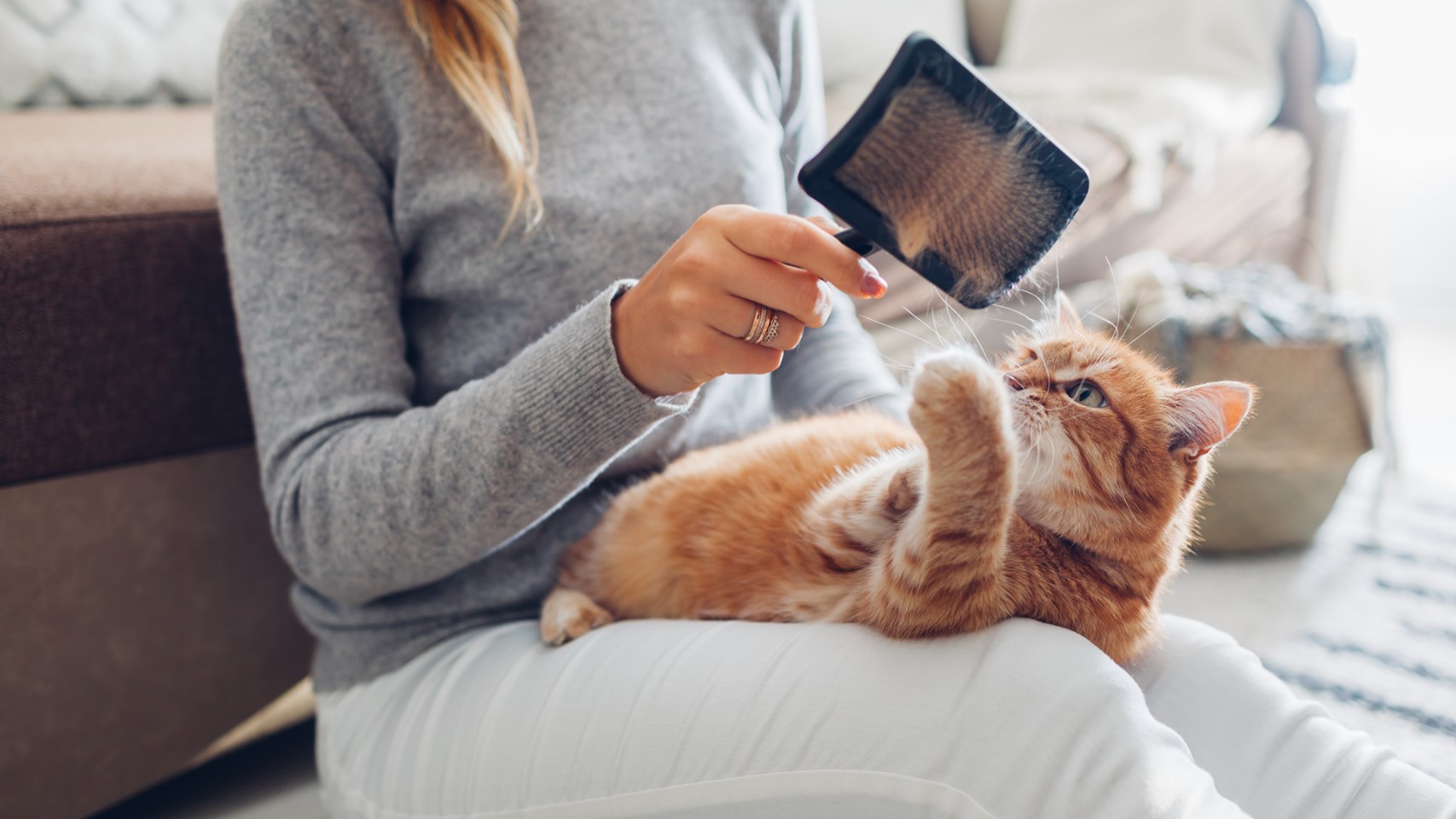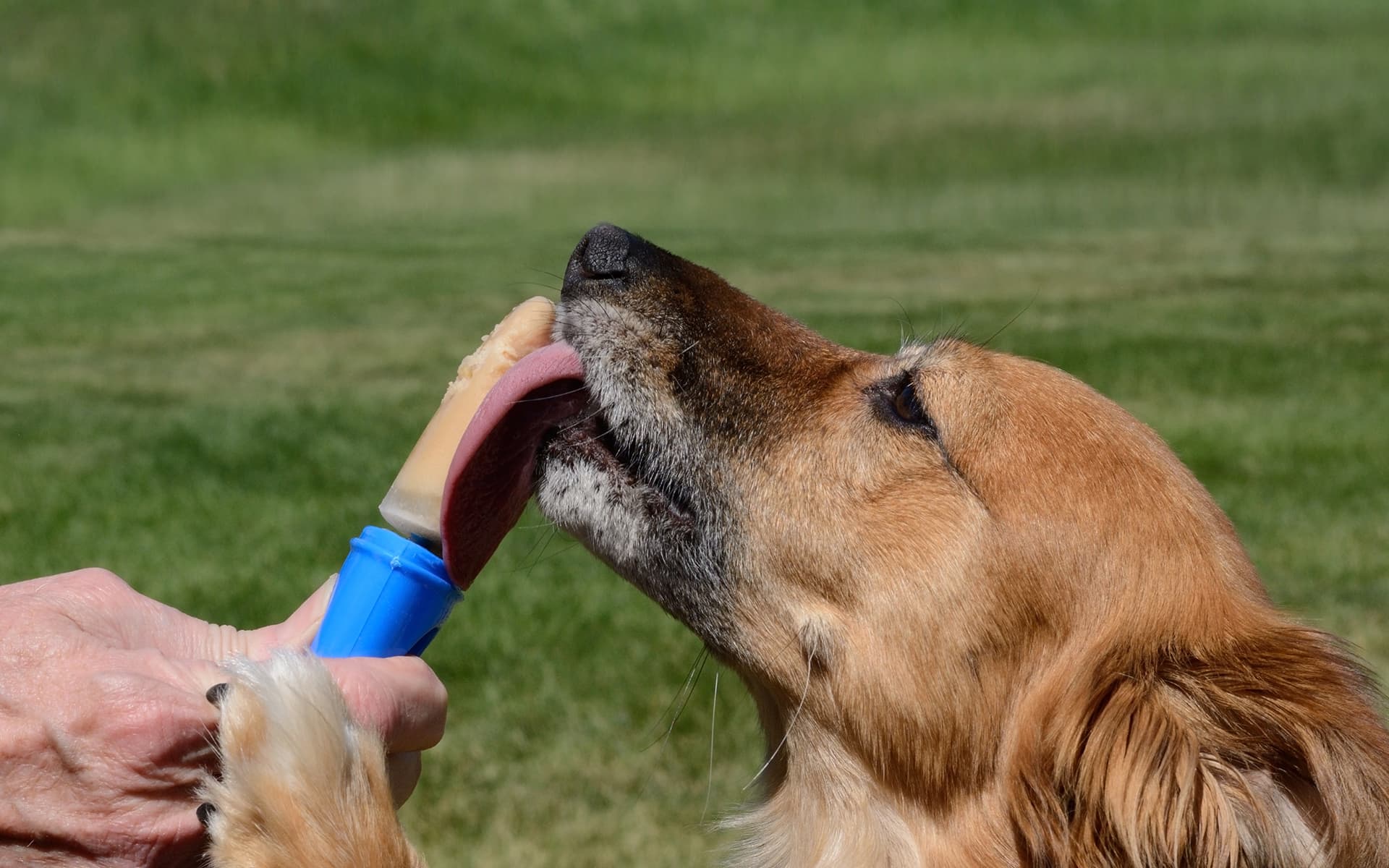Because of their curiosity, your cat or dog ended up being sprayed by a skunk. Why does it stink so much? And how can you rid your furry friend of this persistent smell? Here’s our advice.
Why does skunk spray smell so bad?
As a defence mechanism, skunks produce yellow oil through their anal glands. This liquid contains thiols, organic compounds that smell like rotten eggs and can quickly bind to skin proteins. A skunk can spray this substance up to 15 ft away when feeling threatened.
How can you keep skunks away?
While you can’t make your yard completely skunk-proof, you can make it less attractive to wildlife. Keep your garbage in a tightly sealed bin, block access to the space below your porch or shed, and don’t leave your pet’s food or water bowls outside at night.
How to remove skunk smell from a sprayed pet
1. Check your pet’s eyes.
Skunk spray can irritate eyes and even be toxic to your pet if ingested. Check your pet’s eyes for redness, and immediately flush with water, ideally using an over-the-counter sterile eyewash. Call your veterinary clinic for further recommendations if your pet was sprayed in the face.
2. Keep your pet outside.
The pungent smell of skunk spray is exceptionally challenging to remove and can linger in the air. Keep your pet outside to clean them or move them into a separate indoor area, such as a garage or a shed.
3. Use a pet-friendly skunk odour remover.
Use a top-rated skunk shampoo designed for pets for maximum efficiency and convenience. Work the solution into your pet’s coat according to the instructions on the product’s label. Rinse thoroughly.
If your cat reacts poorly to water, it may be challenging to douse them completely. Instead, try using a sponge or a wet towel to dampen their fur, then apply the shampoo. Finally, wipe the solution with a fresh water-soaked towel.
Tomato juice bath or DIY skunk shampoo?
The old-time remedy of giving your pet a tomato juice bath isn’t very effective. You may prepare a homemade skunk shampoo by mixing 1 quart of 3% hydrogen peroxide solution, ¼ cup of baking soda and a teaspoon of dishwashing soap. However, this requires additional precautions:
- Use the above mix immediately and throw away leftovers. The substance may explode if kept in a closed container.
- Peroxide causes irritation: wear rubber gloves and don’t get any in your pet’s eyes.
- Don’t let peroxide linger on your pet’s fur, as it can bleach it.
- It may prove impossible clean your pet’s face thoroughly.
For all these reasons, it’s typically much simpler to use a pet-friendly commercial product.
4. Wash your pet using their regular shampoo.
Shampoo your pet the way you usually do to remove any residual solution and leave them smelling clean. Dry them using a fresh towel.
5. Machine wash your clothes and towels.
Unless you’re discarding them, you’ll need to wash your towels. You may also need to wash your clothes if any of the skunk smell got onto you in the process. Use regular laundry detergent and add a ½ cup of baking soda.


